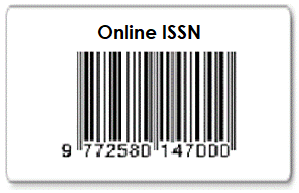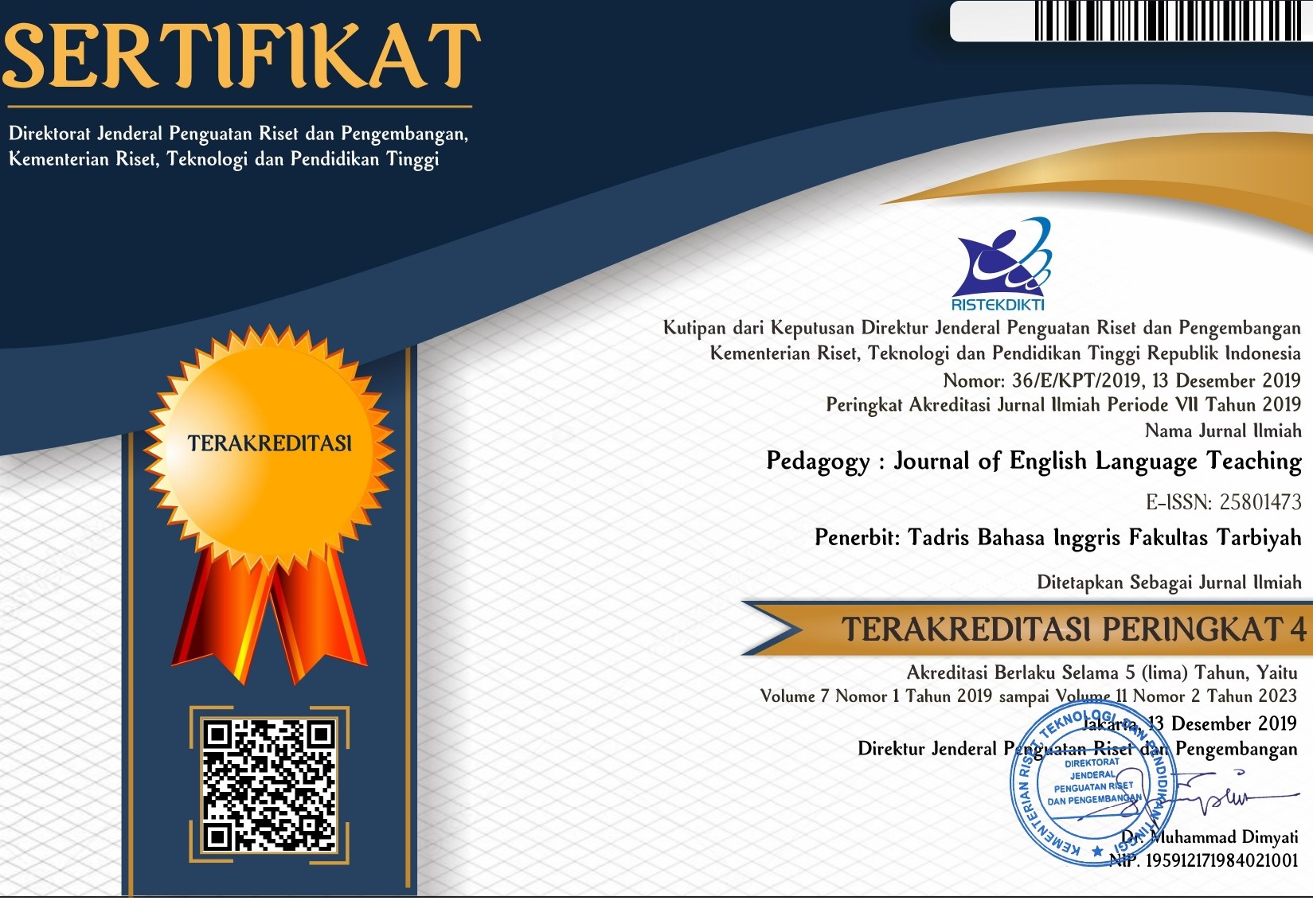Student’s Cognitive Engagement in Teaching Vocabulary through Mnemonic Strategy
DOI:
https://doi.org/10.32332/joelt.v11i2.7658Keywords:
Cognitive Engagement, Vocabulary, Mnemonic Strategy, Total Partcipation TechniqueAbstract
This research aims to explore students' cognitive engagement and find out student’s perception towards learning vocabulary through mnemonic strategy. This research is a qualitative research with TPT cognitive engagement model as research design. The data of this research was gathered for four meetings by using observation, interview, and documentation. The data of observation were analyzed by interactive analysis supported by quadrant and tally analysis. The researcher take five participants from 10th grades from one of Islamic senior high school MAN 2 Kuningan. The findings showed that students have positive cognitive engagement where all of the participants get in the 4th quadrant except for one. Students Cognition level improved throughout the time until they have high cognition and high participation. Students also showed positive perceptions where they feel happy and fun during learning because they considered mnemonic strategy is like a game. Students also stated that their thinking skill is improved by the learning. Mnemonic strategy is also suggested to be implemented as a method in learning vocabulary in schools because it is effective.
















